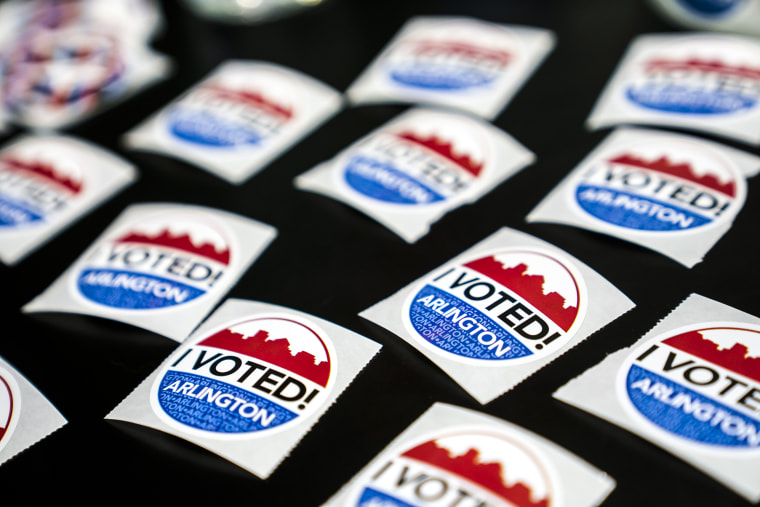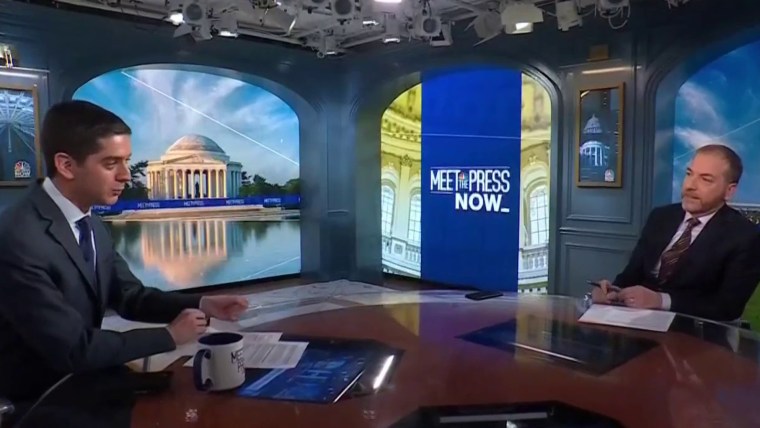There is no good reason to deny citizens who’ve served time for committing crimes — even horrible crimes — the right to vote. In Virginia, though, Gov. Glenn Youngkin, a Republican, has decided that his administration will choose which Virginians convicted of felonies should be allowed to vote.
What criteria is Youngkin using to determine who is entitled to cast a ballot? Only he knows. Apparently, he’s going to balance “grace” with concerns for “public safety.”
What criteria is Youngkin using to determine who is entitled to cast a ballot? Only he knows.
Youngkin exercising this kind of discretion matters on the state and national level because it can factor into which political party wins elections in Virginia, including who wins the White House in 2024. But its impact on individual Virginians trying to fully re-enter society is even more significant. A person’s civil rights ought not be subject to the discretion of any politician, especially not one believed to be eyeing a White House run.
As the Virginia Mercury reports, in making people who’ve been released from prison proactively apply for the restoration of their voting rights, Youngkin is breaking a precedent followed by his three immediate predecessors (a Republican and two Democrats) who oversaw the automatic restoration of voting rights for at least certain groups of former prisoners. What’s more, Youngkin’s administration reportedly changed the policy without announcement and only acknowledged it after state Sen. Lionell Spruill, a Democrat, asked why the pace of voting rights restoration had appeared to slow down.
Former Gov. Ralph Northam restored voting rights to 126,000 Virginians (an average of 31,500 people a year) during his four-year term as governor, the Virginia Mercury reports. Youngkin, during his first year, restored such rights to only 4,300 people. That’s an 86% decrease.
“Each applicant is different and we utilize our partners at the Virginia Department of Corrections, Virginia State Police, Virginia Department of Elections, Virginia Department of Behavioral and Developmental Services, and the Compensation Board to research each application and provide further information to be used in the consideration process,” Secretary of the Commonwealth Kay Coles James wrote Spruill in a letter dated March 22.
That “each applicant is different” is true but irrelevant when it comes to something as significant as eligibility to vote. In states where prisoners lose their right to vote, those who are released from prison should have their right to vote automatically restored. If a state’s restoration process isn’t automatic, then it should be impersonal. Never should law enforcement or corrections officials have a say in whether a person who has served time gets to cast a ballot. Such a policy amounts to giving police and wardens never-ending authority over those who’ve completed their sentences.
In a statement to the Virginia Mercury, Spruill said he will “fight back against the rollback of these rights.” He wrote, “Once you have served your time, your rights should be restored for non-violent felons. Period.” He also vowed to “fight against this secret process and secret set of rules that the governor is using to decide who can be denied the right to vote.”
Unlike the lawmaker, I don’t believe anybody who’s served their time, whether their crime was violent or not, should be barred from voting.
The recent push to get rid of laws that permanently or indefinitely disenfranchise people with felony records was as successful as it was because it was so easy to show voters that such laws were racist in their origin and their application. The post-Reconstruction “redeemers” who passed laws denying the ballot to those who’d been in prison had already conspired to put recently emancipated Black people in prison.
A delegate to Virginia’s constitutional convention in 1902 said his goal was to “disenfranchise every negro that I could.” That’s why one of Spruill’s colleagues in the Virginia senate tweeted recently that Youngkin’s divergence from the path of Virginia’s three previous governors means he’s taken the state “back to 1902-era policy.”
Contrast what Youngkin is doing with what New Mexico Gov. Michelle Lujan Grisham, a Democrat, did Wednesday
Contrast what Youngkin is doing with what New Mexico Gov. Michelle Lujan Grisham, a Democrat, did Wednesday. She signed into law a bill that allows people in New Mexico who are on probation and parole to vote, an expansion that restores the voting rights of 11,000 New Mexicans.
Just like what happened in 1902 was a backlash to Reconstruction, policies such as Youngkin’s represent a backlash to Americans’ more inclusive views of who gets a say in how our government operates. In 2018, Florida voters passed a statewide initiative allowing people with felony records to vote. But then Florida Gov. Ron DeSantis and Republican lawmakers decided that people with such records should be made to pay off any fines and court costs first. Thus, they established what amounts to a 21st century poll tax.
Now along comes Youngkin, who didn’t even have the decency to publicize a policy that has drastically reduced the number of Virginians getting their right to vote back.
Just like there was a reason Jim Crow-era politicians put laws in place to make it hard or impossible for people with records to vote, there’s a reason Republicans today have been more likely to oppose laws making it easier for people with records to vote. The goal — then and now — was to block would-be voters who are likely to reject the more conservative party.
“The Governor firmly believes in the importance of second chances for formerly incarcerated individuals as they look to become active members of their community and citizenry,” James, the commonwealth's secretary, wrote Spruill in that March 22 letter. His alleged firm belief is contradicted by the precipitous drop in voting restoration since he’s taken office. According to James’ letter, the Youngkin administration is “practicing grace for those who need it and ensuring public safety for our community and families.”
There’s no public safety benefit that’s derived from withholding ballots from former prisoners. And which of those former prisoners get to vote should not be determined by Youngkin’s grace, but by adherence to a clear-cut and transparent policy.
As governor, there are many things Youngkin should get to choose, up to and including whether he runs for president, but in no way should he be getting to arbitrarily choose which individual Virginians are allowed to cast a ballot.


